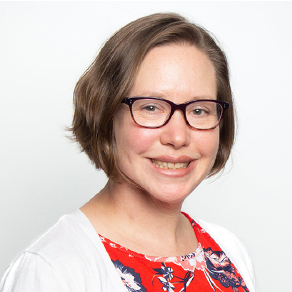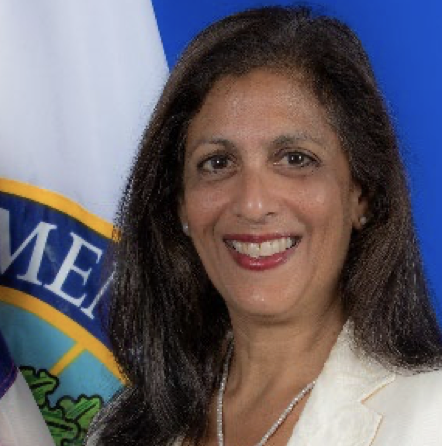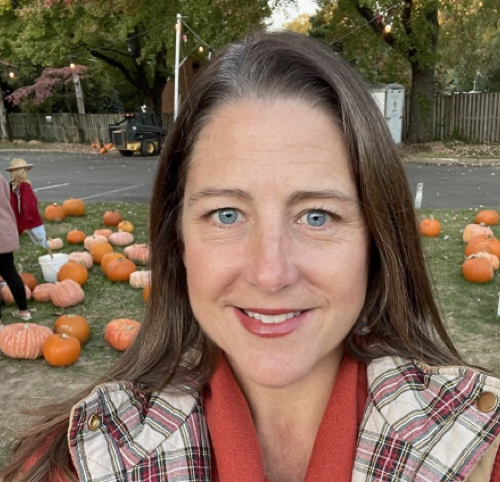
- This event has passed.
Investing in Kindergarten as a “Sturdy Bridge”: Philanthropic Opportunities

“My longtime mentor, Dr. Ruby Takanishi, the founder of the PreK–3 movement said, ‘We have to do a better job of reducing the chaos at the schoolhouse door.’ By this she meant that we need to build a more aligned system, a system that requires a ‘sturdy bridge’ between the early years and the early grades. This ‘bridge’ is kindergarten.”
In this Funder-to-Funder Conversation, Investing in Kindergarten as a “Sturdy Bridge”: Philanthropic Opportunities, Swati Adarkar of U.S. Department of Education shared the above quote as she introduced the Department’s new PreK–3 agenda, explaining how the agenda was designed to transform transitions into and out of kindergarten, advance an equity lens to better meet the developmental needs of individual children, and deliver the enabling conditions for success.
After Adarkar introduced that agenda, Laura Bornfreund of New America moderated a conversation with a panel of philanthropic leaders as they discussed their investments to support children’s success along the birth through third-grade continuum and how those investments work to strengthen the “sturdy bridge” that Adarkar described.
Chrisanne Gayl shared how Trust for Learning, a philanthropic partnership comprised of multiple funders, works nationwide using a cohort approach to strengthen the quality of early learning environments, birth to age 8, and outlined the Principles of Ideal Learning that guide those efforts. Phil Halperin explained how Silver Giving Foundation supports PreK–3 strategies in smaller school districts across California where 60 percent of children come from homes where the primary language spoken at home is not English. Based in Chicago, Sara Slaughter described how W. Clement & Jessie V. Stone Foundation works as primarily a systems and policy funder investing in state and national advocates to strengthen PreK–3 systems. Also based in Chicago, Bryan Stokes II explained how the Robert M. McCormick Foundation invests in birth-through-kindergarten citywide, with some statewide investments to increase access to quality early education programs.
The panelists discussed the need to break down the silos that separate the traditional K–12 and early care and education spaces, allowing for better alignment and coordination and a more seamless experience for children and families with Gayl noting:
“We divide early education into birth through 5 and elementary school and that is really a false dichotomy because, in fact, that whole period is part of a developmental continuum for children’s learning and development.”
They discussed their efforts to strengthen the early learning and early grades workforces, noting the importance of building pathways into the teaching profession for adults who reflect the racial, ethnic and linguistic diversity of the children they serve as well as growth pathways to help those educators secure higher credentials. Slaughter called on funders to take action, saying:
“There’s a mindset out there that lies underneath this that, ‘Oh, you’re teaching little kids. You aren’t teaching Calculus or Shakespeare, so it can’t be complicated. It doesn’t require that much and we don’t need to pay you much.’ Funders have to use our voices to start changing that mindset and advocating for the salaries and preparation that we know our workforce deserves.”
Pointing to the fact that few principals and school and district leaders come out of elementary schools, the panelists discussed their efforts to build a leadership pipeline for early grade teachers with Slaughter and Stokes explaining how Illinois requires all principal preparation programs to embed content on early childhood, dual language learners, special ed and social-emotional learning, with Stokes saying:
“One thing we have been able to do in Illinois is very intentionally build the early grades into principal preparation….We ensure that if you’re becoming a principal in Illinois you receive some focused content about those early years. So, I think that’s the beginning of starting to change the mindset and [move] away from that belief.”
The engaging panel conversation covered a range of other important topics, including the importance of family engagement, setting patterns of regular attendance beginning in kindergarten, using early childhood data to inform planning and last mile/implementation approaches. As they discussed these topics, they highlighted the unique roles that funders can play, including providing risk capital and taking a long view with their investments, with Halperin saying:
“I think [funders] need to be very risk oriented…Gordon Moore, the founder of Intel said, ‘If you are only failing 50% of the time, you’re not trying hard enough.’ That’s what the Silver Giving staff tries to do. We try to fail as often as possible because we learn through it. I think that’s the role of philanthropy. There are billions and billions of state, local and federal dollars dedicated to the PreK–12 endeavor, but our job is to be the risk capital in this endeavor.”
Panel








